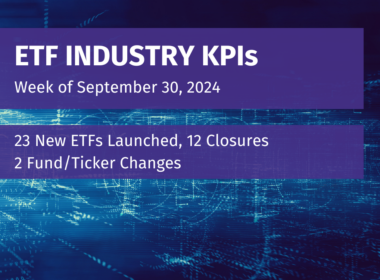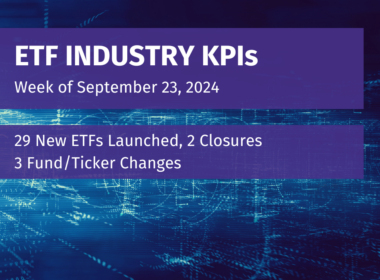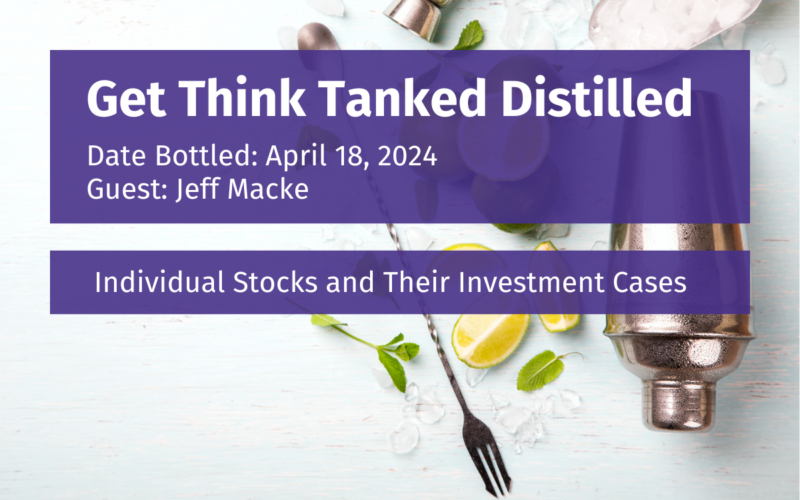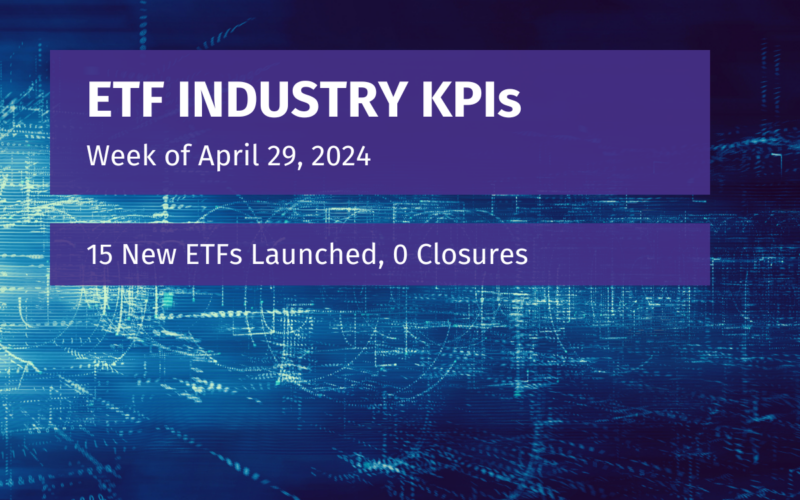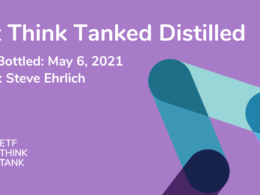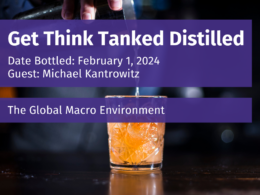Christopher Leonard is an investigative journalist and author of the book “The Lords of Easy Money”, which discusses the ramifications of Fed policy since the financial crisis. In it, he talks about how the actions of the Federal Reserve since 2010 are one of the biggest stories of our time and why the financial markets are still at risk because of what the Fed is doing today. He joins the ETF Think Tank to discuss the Fed and what could happen if the central bank doesn’t change its course.
One of Leonard’s bigger qualms about the Fed is its lack of transparency. He says that Bernanke took a step forward in holding post-meeting press conferences starting in 2009, but most of what happens still happens behind closed doors. The FOMC meets in secret. Meeting minutes aren’t released until weeks after the meeting. It’s a very opaque organization that’s not doing a lot to gain the public’s trust. The other issue is that nobody really has any idea what Chair Powell is thinking. Seven members work in the same building and Betsy Duke has said they meet with each other and know how they’re going to vote even before the meeting takes place.
Right now, Leonard says that the key thing is the tension between keeping rates high and potentially damaging the economy and cutting rates too quickly at the risk of reaccelerating inflation. The central bank’s credibility for getting inflation back to 2% is at risk if they cut too soon. He notes that at some point, we have to have a recession. A little recession is OK, but the Fed wants to avoid a bad one. The big dynamic is that money was ultra-easy for a decade with zero interest rates and trillions of dollars in printed money. How can they hike rates without creating a major financial crisis? The Fed needs to show that it can fight inflation without short-circuiting the whole system.
A bigger topic that has come up lately is Fed independence, especially with a presidential election approaching. The real independence question isn’t between the Fed and the White House, it’s between the Fed and the Treasury. When Powell talks about tightening, he means removing the Fed as a buyer, which adds to the cost of government borrowing. You see these stories about anemic buying of new Treasuries. This is a huge deal and raises a lot of tension in how independent the Fed can be. If yields hit 6-7%, how can the government handle that? This is the biggest pain point of Fed independence and Leonard believes it will be interesting to see if they can maintain that over the next couple years.
One connection that Leonard does see is how the bitcoin movement was spurred with this ridiculous QE cycle. In 2010, the Fed was creating dollars out of thin air and injecting them into the banking system. They thought they’d totally unwind their position by 2014-2015. It was just a short-term plan and they were going to top out at around $1 trillion. Now they’re at $7 trillion and that might be the new floor. It was thought the FOMC could impose discipline, but it seems likely that’s all gone out the window. Bitcoin’s attractiveness is that it has no oversight and intervention potential. It’s become kind of a synthetic gold.
Other key takeaways:
- Paul Volcker is the most legendary Fed chair because he’s the person who stopped the great inflation of the 1970s. He plunged the economy into recession, but he got inflation under control. Powell would want to be looked at like a Volcker figure in that he walked the long road in order to do the hard thing, but got things under control.
- The Fed’s policies have put us in profoundly uncharted waters. The Fed was one of the largest purchasers of debt in the world around COVID. We’re looking at things today that were inconceivable in 2009.
- Greenspan did a disservice to the markets by giving the impression that the work the Fed was doing was rocket science. It’s complicated, but it’s not THAT complicated. Winners and losers are being created and it’s important that this can be communicated effectively. Powell does a much better job of this.
- The Fed has really painted itself into a corner. Powell was insistent on a 2% inflation target. If they change it now after “re-evaluating”, it would look like they were caving to Wall Street. Leonard doesn’t know how they get out of that corner.
- Leonard believes that Powell is going for a place in history. What comes first from Powell – the hedge fund or the book? Definitely the book.
Disclosure
All investments involve risk, including possible loss of principal.
The material provided here is for informational purposes only and should not be considered an individualized recommendation or personalized investment advice. The investment strategies mentioned here may not be suitable for everyone. Each investor needs to review an investment strategy for his or her own particular situation before making any investment decision.
All expressions of opinion are subject to change without notice in reaction to shifting market conditions. Data contained herein from third-party providers is obtained from what are considered reliable sources. However, its accuracy, completeness, or reliability cannot be guaranteed.
Examples provided are for illustrative purposes only and not intended to be reflective of results you can expect to achieve.
The value of investments and the income from them can go down as well as up and investors may not get back the amounts originally invested, and can be affected by changes in interest rates, exchange rates, general market conditions, political, social, and economic developments, and other variable factors. Investment involves risks including but not limited to, possible delays in payments and loss of income or capital. Neither Tidal nor any of its affiliates guarantees any rate of return or the return of capital invested. This commentary material is available for informational purposes only and nothing herein constitutes an offer to sell or a solicitation of an offer to buy any security and nothing herein should be construed as such. All investment strategies and investments involve risk of loss, including the possible loss of all amounts invested, and nothing herein should be construed as a guarantee of any specific outcome or profit. While we have gathered the information presented herein from sources that we believe to be reliable, we cannot guarantee the accuracy or completeness of the information presented and the information presented should not be relied upon as such. Any opinions expressed herein are our opinions and are current only as of the date of distribution, and are subject to change without notice. We disclaim any obligation to provide revised opinions in the event of changed circumstances.
The information in this material is confidential and proprietary and may not be used other than by the intended user. Neither Tidal nor its affiliates or any of their officers or employees of Tidal accepts any liability whatsoever for any loss arising from any use of this material or its contents. This material may not be reproduced, distributed, or published without prior written permission from Tidal. Distribution of this material may be restricted in certain jurisdictions. Any persons coming into possession of this material should seek advice for details of and observe such restrictions (if any).




